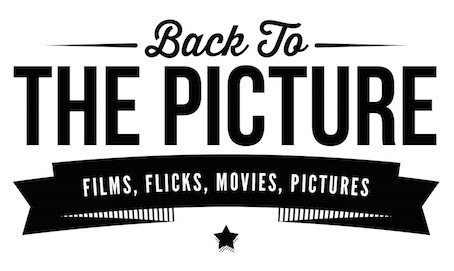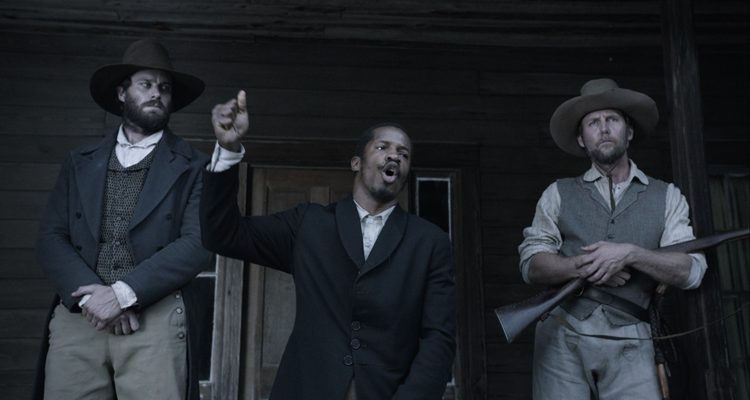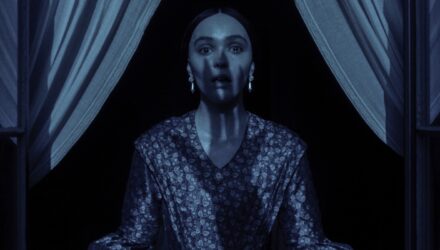Pain.
This is an avenue of expression the essence of which is RARE to find in the motion picture arts. Think of the many thousands upon thousands of movies ever made and there are only truly around 100 movies that capture the pain in visual mastery, and that number may be generous. Now take it a step beyond to films that LIVE the pain, that make you really feel it and connect to it on such a deep level that you are changed in some small way or large after having viewed it. That is a short list indeed. Boys Don’t Cry (1999), Grave of the Fireflies (1988), and Schindler’s List (1993) are some of the select few that come to mind. You may now add The Birth of a Nation(2016) to the list.
Immediately when a film of this nature arrives the usual reaction is to grab at something similar in comparison. 12 Years a Slave is the closest in subject matter and high profile, yet it honestly dwarfs its predecessor in all but box office success. Internal and external anguish created “Birth” the man behind and in front of this film, Nate Parker, found a unique grain of inspiration that allowed him to dig deep down into the pages and pull out that pain. He pulled out of every actor that graces the screen in any significant way. The entire production had to have been spellbound in a way for event he background characters to come off so raw, exuding the distress that leaps from the screen even in the quiet moments.
Nate Parker makes his directorial, and writing big screen debut as well as starring front and center as Nat Turner, a curious boy born into slavery, teaches himself to read and is thus chosen by the lady of the house to be raised reading only one book, The Bible. Nat grows into a man and becomes the most trusted of the slaves by the Turner family as well as a preacher for the slaves bringing them under the umbrella of Christianity. Though made clear in the performance of Penelope Ann Miller, portraying Elizabeth Turner, that this was unintentional, word has spread that because of Nat’s weekly sermons, the Turner’s slaves have a reputation as the most well behaved in the region. Armie Hammer, who continues to build a fantastic lineup of good performances, portrays Samuel Turner. He and Nat are around the same age and grew up together in the plantation house, and when Samuel’s father dies, he is left in charge. A reverend brings news to Sam of a business opportunity, plantation owners all around want Nat to preach to their slaves and in those sermons, stick to the passages of scripture that speak to obeying thy master.
An interesting bit of emotional sway is at work in the first few major scenes. The Turner plantation treats its slaves well, no one rapes the slave women, no slaves are beaten because they are as advertised, well behaved. Sam Turner is about the most likable slave master you’ll ever see. There is an empathy in his eyes and his manner. Hammer’s performance shows an honest look at a man bound by circumstance but conflicted by morality and is trying the best way he can to balance the realities of his station. He and Nat have a rapport of something more than merely master and slave, a trust of sorts, you see a mild friendship in the opening scenes showing they grew up together.
There are many points of human nature tested in this film. Choosing money over morality. Justifying wrongdoing because its widely accepted to do so (in this case concerning treatment of slaves) Armie Hammer brings forth his most promising performance to date. His character arc from decent man to drunken depression to just another vile slave owner shows that need and greed can change a good man quickly. No film in memory portrays so well the sickening nonchalance with which slave owners and slave catchers treated their captives. The lens with which we view this film and those particular characters is not one of hate, but of indifference. Yes there is some hatred in there but its the indifference, like these darker shade of humans are akin to cattle for the most part and pets at the higher end. There are two particular scenes where we meet other plantation owners of a more insidious and uncivilized sort. There is no over the top measure of malice in their actions. They treat slaves like beasts of burden. Plain and simple. And in that subtle difference between other films showing you maliciousness to this one showing that indifference, you find a whole other eye opening understanding of just how vile this practice was. People can understand hate, its easy to see and easy to grasp. Its much harder to fathom deep ingrained indifference for someone walks talks and looks just like you, only they are darker in hue. This is what I mean when I say the choices made for this film come from a deep pain and are so excellently executed to make you truly feel part of it. You’ll be horrified or you’ll find yourself horrified that you aren’t as horrified as you thought. Therein lies the power of Parker’s film. The strings of emotion are constantly tugged in precisely the right directions from scene to scene to make the audience feel. From opening to ending. Restraint to Rebellion.
As great as the contents of the film are, nothing would be made possible without an incredible technical side. From a hauntingly beautiful score, to an immersive, gorgeous approach to a stunning visual presentation via the cinematography of Elliot Davis. Coloring, shot selection, framing, timing of scenes. Letting scenes flash and simmer as needed. The entire production was done at a top notch level on par with any multiple Oscar winning film you’ve seen to date.
Unfortunately, the only bad thing about this film was the lack of people that supported it. There is an outcry that white people didn’t support it but in all actuality, this film was doomed due to a 3rd wave feminism movement that pounced on Nate Parker just a few weeks prior to the films opening weekend. His sexual assault allegations, of which he was acquitted, were bombshelled into the news stream in an explicit effort to hurt him by hurting the film. This goal was accomplished. Many factors figured in to its high Sundance price tag: the Oscars So White campaign, Black Lives Matter was kicking off, and Netflix offered 20 million. Fox Searchlight only got the sale because of the higher return potential and higher Oscar profile potential of theatrical release.(Being a Netflix property was a significantly high factor in why Beasts of No Nation didn’t win any top awards though it was arguably the best release of the year.) This is not an attempt at a political or moral stance, just some insight into why there has been a 180 degree flip on the reception of the once highest praised film to ever come out of the prestigious Sundance Film Festival. The blind moral stance without facts is the easiest stance to take. Rape = bad which is correct. Innocent of Rape ALSO = Bad because rape is involved so its easier to just rail against instead of taking any backlash for supporting the actual content regardless of circumstances surrounding it. On the other side, an argument can be made that with the brutal realities that are tackled in this film, there are two prominent rape scenes that are touched on but not explored. This actually can be perceived as Nate Parker running from his past, or if he did shoot the scenes, they may be left out in order to avoid a death penalty NC-17 rating for which not many theaters would carry the film. As a whole if those 2 scenes are fleshed out, the movie experience will dial up that pain 100 fold and would actually make it a more perfect film.
All that said, this is an insightful, painful and beautiful film that adults of all colors and creed should endeavor to view I’ve given this The Birth of a Nation a 9.7 out of 10. With any film there are flaws, just not many to name here. There is perspective to be found. This is a film that will change you. Its brutal. That’s the way honesty is supposed to be and this is an honest work of art.
9.7
Ugly Scars Can Bear Beauty
A triumph everyone saw coming, yet most avoided
Perhaps this saying wasn't meant to be used this way, but this film captures the definition of the saying: "There is beauty in pain"
Satisfaction Gauge
9.7





